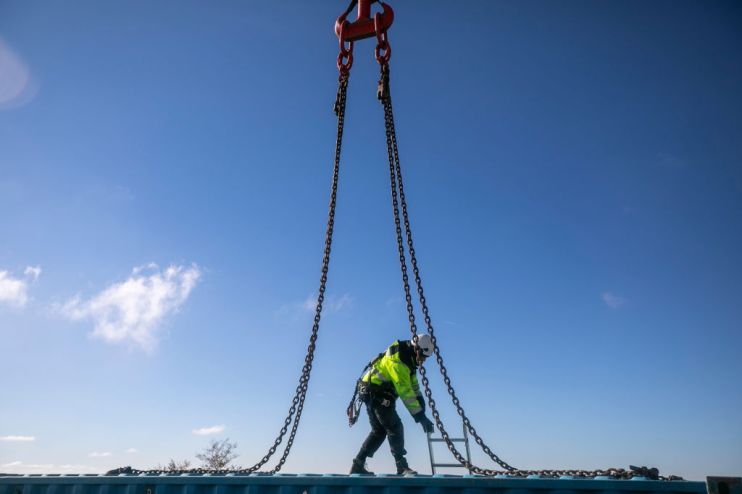UK and EU hope to use North Sea to fight Putin’s energy supremacy

The UK has joined forces with its European allies to ramp up renewable energy generation and bolster the continent’s security of supplies following Russia’s invasion of Ukraine.
Nine countries surrounding the North Sea are targeting an eightfold increase in electricity generation over the next three decades, powered from massive “turbine islands” built at sea – consisting of connected renewable generation sites.
Energy secretary Grant Shapps attended the talks alongside Belgium, Denmark, Ireland, France, Germany, Luxembourg, Netherlands, and Norway.
They all pledged to expand wind power in the region to strengthen the continent’s energy security at a summit in Ostend, Belgium yesterday.
The group is aiming for a combined 120 gigawatts (GW) of North Sea offshore wind capacity by 2030, and 300GW by 2050, more than quadrupling the current 25GW across the region.
The investment required to reach these targets would be vast – with the EU recently calculating £708bn would be needed to reach 300GW by 2050, making state support for projects all but a formality.
The aim is to curb the EU’s reliance on Russian gas and slash its usage of CO2-emitting fossil fuels, which remains dominant in the continent’s energy mix.
Norway last year became Europe’s biggest gas supplier, after Russia throttled supples into Europe following its invasion of Ukraine.
The UK earlier unveiled plans for Europe’s biggest cross-border electricity link with Netherlands, connected to an offshore wind farm.
The government has since announced it has reached an agreement with Germany, Denmark and the Netherlands to develop future production of hydrogen powered by offshore wind.
The countries are targeting a combined 30GW of hydrogen production capacity by 2030, powered by offshore wind.
The UK will also continue discussions on a hybrid interconnector with Belgium – Nautilus – as well as opportunities for hybrid offshore wind and interconnector projects in the North Sea with both Ireland and Germany.
Energy security secretary Grant Shapps said: “Today’s deal at the North Sea Summit has the UK centre stage, using its world-leading expertise in renewable technologies to boost the supply of cleaner, cheaper, more secure offshore wind as part of wider efforts across the continent.
“This will create green jobs across the country, and will ultimately lead to lower bills for consumers as we move away from more expensive fossil fuels. But it also sends a strong message to Putin that his control over European energy markets is well and truly over – and that the UK and North Sea countries will be looking to home-grown sources for years to come, boosting energy security and independence.”
Meanwhile, the EU and Norway pledged to develop infrastructure to capture and store CO2 from depleted North Sea gas fields.
European leaders and energy ministers have also been discussing protecting offshore energy infrastructure from security threats and cyberattacks.
This comes after warnings from Scandinavian intelligence agencies that Russian ships have been mapping out key sites in the North Sea without authorisation.